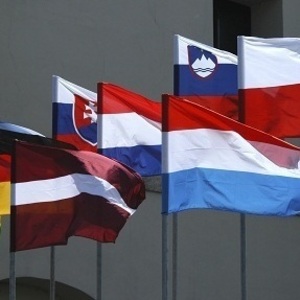EU Energy Council agreement sends mixed messages on renewables

December 19, 2017
BY The EU Biodiesel Chain
On Dec. 18, the EU Energy Ministers agreed on the Council General Approach for the post-2020 EU Renewable Energy Directive (RED II). The EU Biodiesel Chain welcomes the council decision to increase the minimum share of renewable energies in transport from 10 percent in 2020 to 14 percent in 2030. Moreover, maintaining of the 7 percent share for crop-based biofuels until 2030 is an important signal recognizing the crucial role played by conventional biofuels in the decarbonization of the EU energy mix.
At the same time, the council text foresees the possibility for member states to reduce their renewable energy target in transport if their respective cap on crop-based biofuels is equally reduced. This approach is highly concerning, as it might lead to internal market disruption and reduced investors’ confidence; and, coupled with the introduction of high artificial multipliers for the electricity sector, it would end up benefitting fossil fuels and lower transport decarbonization ambition in the EU.
In addition, the possibility to distinguish between biofuels based on their perceived indirect land use change (ILUC) effect should be removed. There is no existing consensus on the ILUC concept in the international scientific community, therefore no reason to rely on those values for any alleged differentiation.
“In the upcoming trialogue negotiations with the European Parliament and the commission, the RED II ambition should be increased, as the current text does not ensure sufficient decarbonization of the transport sector, especially for heavy-duty vehicles, as well as aviation and maritime sectors, where electrification is not a feasible solution,” said Raffaello Garofalo, secretary general of the European Biodiesel Board.
Advertisement
Advertisement
The EU Biodiesel Chain includes the European Oilseed Alliance, Fediol and the European Biodiesel Board.
Advertisement
Advertisement
Related Stories
Iowa farmers have a new market opportunity for their 2025 soybean crop. Landus is expanding its Clean Fuel Regulation initiative, made possible by recent policy changes expected to increase Canada's demand for liquid biofuel.
Klobuchar, Moran introduce bipartisan legislation to support biorefineries, renewable chemicals, and biomanufacturing
Sens. Amy Klobuchar, D-Minn., and Jerry Moran, R-Kan., on July 31 announced the introduction of the Ag BIO Act. The legislation aims to update the USDA’s loan guarantee program to better support biorefining projects.
U.S. Secretary of Agriculture Brooke L. Rollins on Aug. 1 announced the opening of a 30-day public comment period for stakeholders to provide feedback on the department’s reorganization plan, as outlined in the memorandum released July 24.
Sen. Chuck Grassley, R-Iowa, on July 31 pressed Derek Theurer, President Donald Trump’s nominee to serve as under secretary of the U.S. Department of Treasury, on the expected timeline for the release of 45Z guidance.
The European Commission on July 28 approved a €36 million ($41.07 million) Danish state aid scheme designed to encourage airlines operating in Denmark to use sustainable aviation fuel (SAF) on domestic routes.
Upcoming Events










